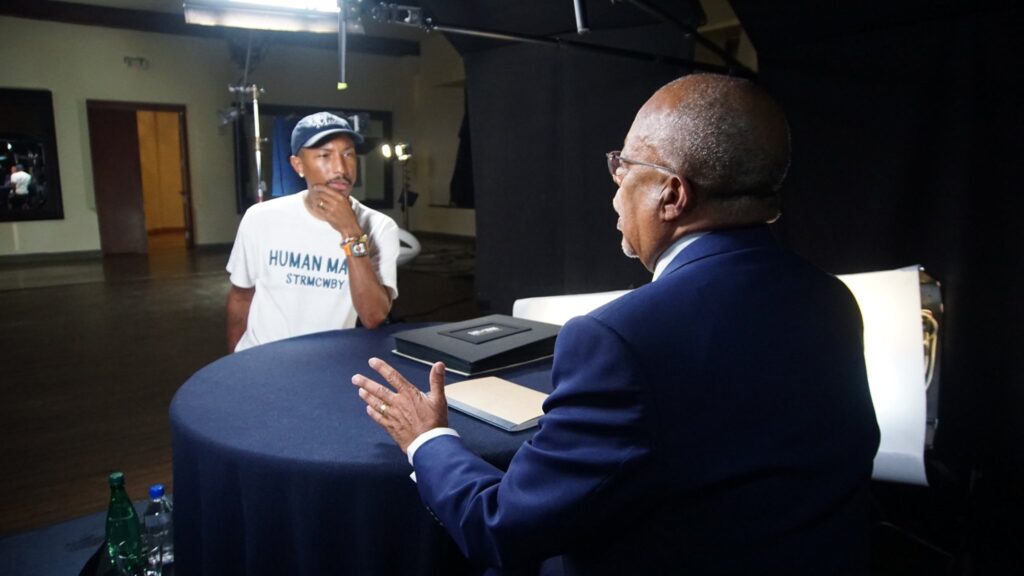( ENSPIRE News ) “Finding Your Roots” Host Henry Louis Gates Jr. Helps Musician Pharrell Williams and Filmmaker Kasi Lemmons Uncover First-person Accounts of Their Enslaved Ancestors
ENSPIRE Contributor: Octavia Johnson
Season 7 of PBS “Finding Your Roots” introduces new celebrities who are looking to uncover their ancestry. In Episode 705, Musician Pharrell Williams and Filmmaker Kasi Lemmons meet with the host, Henry Louis Gates Jr., to discover some rare first-person accounts of their enslaved ancestors.
Williams received an opportunity to talk about his great-great-grandfather Fener Williams, who died in the 1920s. Gates Jr. presented letters written by Fener’s sister, Jane Arrington lived until the 1930s. What he found was his great-great-great aunt was a slave. Born in 1852, Arrington was enslaved on a plantation by the Tar River. She was also interviewed for the “Slave Narrative Project,” which was a series of interviews by former slaves undertaken by the Federal Writers’ Project of the Works Progress Administration from 1936 to 1938.

Williams witnessed, in writing, what his ancestors went through being enslaved on a cotton plantation. Arrington wrote about her experience of being degraded, living in a log house, picking corn stocks, and tending to the cattle. She also had to make sure she swept the entire yard and after completing her work, she still had to help pick the cotton on the plantation. “It puts a vivid intense content behind what it means to be African-American, and I thank God I got to hear it, but I’m so sorry they went through this,” Williams said.
Lemmons received an opportunity to talk about her great-great-grandfather Primus Lemmons who was forced to go to the Civil War (Confederate army) with the son of the man who enslaved him. Lemmons witnessed, in an old article, about grandfather not even having his name on the list of people who were enslaved on the plantation, just his gender, race, and age. Primus was the commissary sergeant to cook.

During the time of war, if any person who was enslaved passed the union line, they were deemed liberation. However, Primus decided to not go beyond the union line and returned to Alabama to remain enslaved. His reason for staying was to be with his family who wouldn’t witness the same freedom as him if he went over the union lines. He then worked as a farmer after the Civil War was over and owned property. In order to gain more land, Primus pretended to care about the person who enslaved him long enough to obtain enough money to return back to his father’s native land in Africa (the documents didn’t state which country).
Follow “Finding Your Roots” on Facebook @FindingYourRootsPBS and @HenryLouisGatesJr, and Twitter and Instagram @HenryLouisGates.







